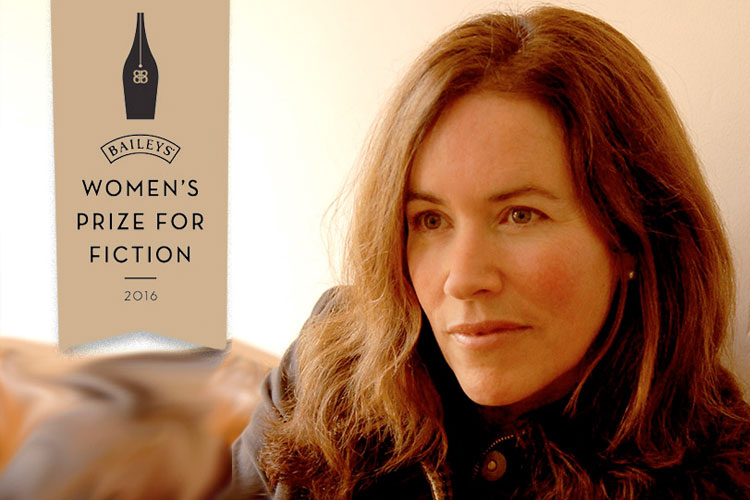From the Women’s Prize Archives.
With this year’s Baileys Women’s Prize for Fiction shortlist only a matter of days away, we caught up with Elizabeth McKenzie, one of this year’s longlisted authors to discuss her nominated book The Portable Veblen, why Palo Alto holds a fascination for her and which writers inspire her the most.
Your characters, particularly Veblen and Paul, are so real they literally jump off the page – do you ever include real people in your writing?
The answer is somewhat patchy. There have been studies showing that the brain has a hard time distinguishing between the real and the imagined. After working with these characters for years, it’s as if they’re real to me, more real than real people sometimes. Sometimes I notice that one character is acting a bit like my mother, or another like someone’s problematic son. Other times I’ll see parts of myself that nobody else would probably recognize emerging in a character. So yes, parts of real people must surely lurk behind many of the characters I write about, but reimagined, repurposed, grafted and given different lives.
Why did you choose to set your novel in Palo Alto?
I lived there a long time ago and have family associations going back almost a century, so it’s a lost domain that I was drawn to revisit. Gradually I discovered the fruitfulness of the setting in terms of the emerging themes of the novel. In the humble Palo Alto of my memories, the contrast between then and now, what Palo Alto has become, a hub of entrepreneurs and tech moguls, became all the more significant. Consumer critic Thorstein Veblen’s early 1900s connection to the area further highlights the glare of the current affluence.
In the novel you take a deeply satirical stance on the medical industry – was this an important theme for you to include?
Yes, there’s a muckraking vein in the character of Veblen that I relate to. Satire seems to be a good weapon for attacking deceitful and cynical institutions. Mocking, too. There’s some mocking in this novel, for instance of marketing. The marketing of essentials for human survival or for war preparations can be shocking and grotesque to the uninitiated–the approach is about the same whether for breakfast cereals or corpse sachets.
Did you do any particular research to enable you to write The Portable Veblen?
There was research into the medical/bureaucratic aspects, as well as into veteran’s issues and Thorstein Veblen’s work. I also became fascinated by the corporate mentality at the heart of Paul’s dilemmas, and I had to understand the irregularities and scandals that bioethicists like Carl Elliott write about. And I wanted to contemplate the social and economic history of the U.S. since Veblen made his observations about consumerism and consider where we are now through that lens. It was challenging and very engrossing, more like a lifelong contemplation than strictly research for one book.
Are there any writers who particularly inspire you?
Many and all. Just to name a few, I’m always eager for everything by Kazuo Ishiguro, Tessa Hadley, Haruki Murakami, Shirley Hazzard, Tobias Wolff.








